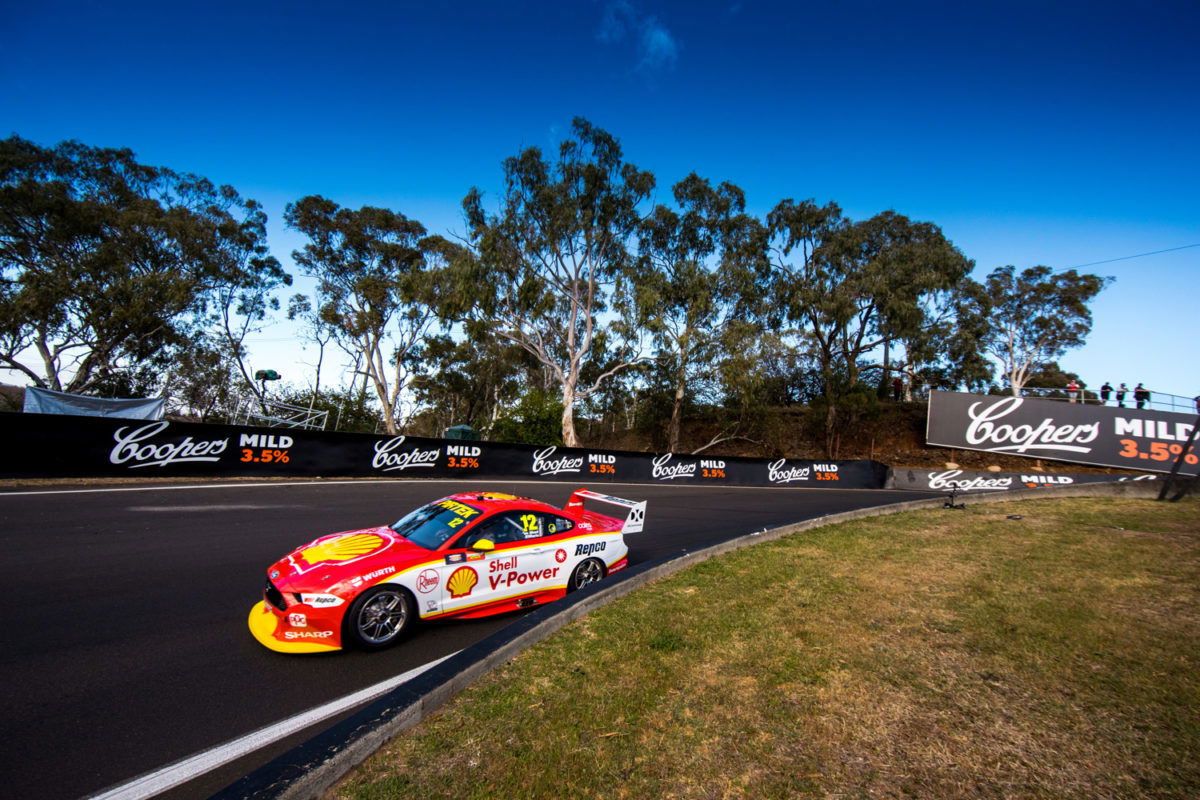

Speedcafe.com wants to know what you think of the slew of penalties issued against DJR Team Penske for a breach of the International Sporting Code (ISC) during the Supercheap Auto Bathurst 1000.
While a maiden Great Race win for both Scott McLaughlin and Alexandre Premat stands, their Ford squad has been docked 300 teams’ championship points and fined $250,000 ($100,000 suspended), with the sister car of Fabian Coulthard and Tony D’Alberto relegated to last classified finisher having originally taken the chequered flag in sixth position.
DJRTP has admitted to the breach of Appendix B of the FIA ISC, namely the ‘Obligation of Fairness’, and the Confederation of Australian Motor Sport has published the lengthy stewards decision which explains the evidence and other relevant considerations.
Nevertheless, the situation is a complex one which has certainly stirred up plenty of feeling among fans and rival teams.
In an ideal world, how should the sins of the team be borne by McLaughlin and Premat, if at all, given they did not break any rules themselves and each put in commendable performances behind the wheel?
Penrite Racing boss Barry Ryan, for example, called for DJRTP’s exclusion from the race in the days which followed and argued that a fine and loss of points, the very penalties which the team itself would ultimately receive, is “not good enough because then you can buy Bathurst.”
Garth Tander, who finished runner-up as co-driver of Shane van Gisbergen, declared on Network 10’s RPM after the decision had been announced, “I feel like still the team has been given a pretty light penalty.
“It’s (the fine) a lot of money to everyone sitting at home, $150,000 to pay off the mortgage.
“But in reality – and I’m not privy to the Shell V-Power commercial arrangements but I’ve seen other commercial arrangements in other teams that I have been part of – that bonuses for winning Bathurst are much larger than $150,000, from one sponsor.
“So I’m not saying it’s a small fine – it’s a large fine – but the commercial reality of that fine? It’s not that big.”
To reiterate, stewards did not establish that any breach had been committed by the Car #17 entry of McLaughlin/Premat specifically, and stated in their decision, “We are prepared to assume that there was no intention to advantage Car #17”.
However, the breach committed by DJRTP more broadly and also Coulthard, who stewards decided was somewhat complicit, certainly affected the shape of the motor race.
Had Coulthard not slowed nearly as dramatically under the Lap 135 Safety Car, Jamie Whincup and McLaughlin would likely have exited pit lane a few positions from the front of the field instead of retaining first and second spot respectively.
At a bare minimum, the hold-up effectively denied the Red Bull Holden Racing Team the option of leaving van Gisbergen out to inherit the race lead.
Van Gisbergen would then have attempted to sprint clear and establish a sufficient lead to take his final pit stop later in the race and, if not retain the lead, resume in a high position and push as hard as possible for the run home.
History shows that he had to conserve fuel, like McLaughlin did and like Whincup initially tried to, and went on to finish second.
We will, of course, never know what could have been, but it is reasonable to suggest that a straight fight (ie same strategy) suited DJRTP given the raw pace advantage of the #17 Shell V-Power Mustang for most, if not all, of the weekend.
The monetary penalty which the well-funded DJRTP has been slapped with, partially suspended for reasons including the team having not committed a similar breach before, is not insignificant by some yardsticks.
Stewards noted that the largest fine issued to a competitor for a breach of Supercars rules had been $200,000, although DJRTP’s fine falls short of the maximum EUR250,000 (approximately AUD400,000 at today’s exchange rates) which stewards are allowed to impose.
The points penalty is, however, the very largest which DJRTP could have been hit with, and is additional to the 120 points which Coulthard and the team lost due to Car #12’s relegation.
Nevertheless, DJRTP still heads the teams’ championship by 423 points, although the lead which it enjoyed prior to the Bathurst 1000 can only be assumed to have been fairly achieved, so it is debatable as to how relevant a consideration that is.
Coulthard, who van Gisbergen labelled a “sacrificial lamb” in the post-race press conference, has been penalised again having also had to serve a drive-through penalty for breach of Safety Car procedures during the race, although stewards did state in their decision, “this is not unfair given that the Driver of Car #12 was to a degree complicit in what occurred.”
Furthermore, if there was no established intention to advantage McLaughlin, then logically the intent was to advantage Coulthard, and the stewards reasoned that, “We agreed with the DRD that the conduct of DJRTP demands a severe Penalty, not just because it was intentionally engaged in to give the Team an advantage but because it was done in a way that reflected a calculated attempt to conceal why it was being done.”
The question of whether or not McLaughlin/Premat should also have been penalised is a more difficult one to answer.
On the one hand, neither of those drivers was involved in the attempt to conceal the Safety Car-related breach, and neither committed a breach themselves.
That they benefited from the breach is not certain. Even if they had have been jumped in the pits by cars which needed to take on less fuel under the Safety Car period in question, there is nothing to say that McLaughlin could not have passed them in the laps which remained and won anyway. He was the fastest driver for much of the weekend, after all.
Even if stewards could consider penalising McLaughlin also, that could be viewed as being extremely harsh in light of an incidental impact and the fact that whatever impact that would have been will not ever be known.
What do you think? Did the punishment(s) meted out to DJR Team Penske fit the crime? Cast your vote in this week’s Pirtek Poll.






















Discussion about this post